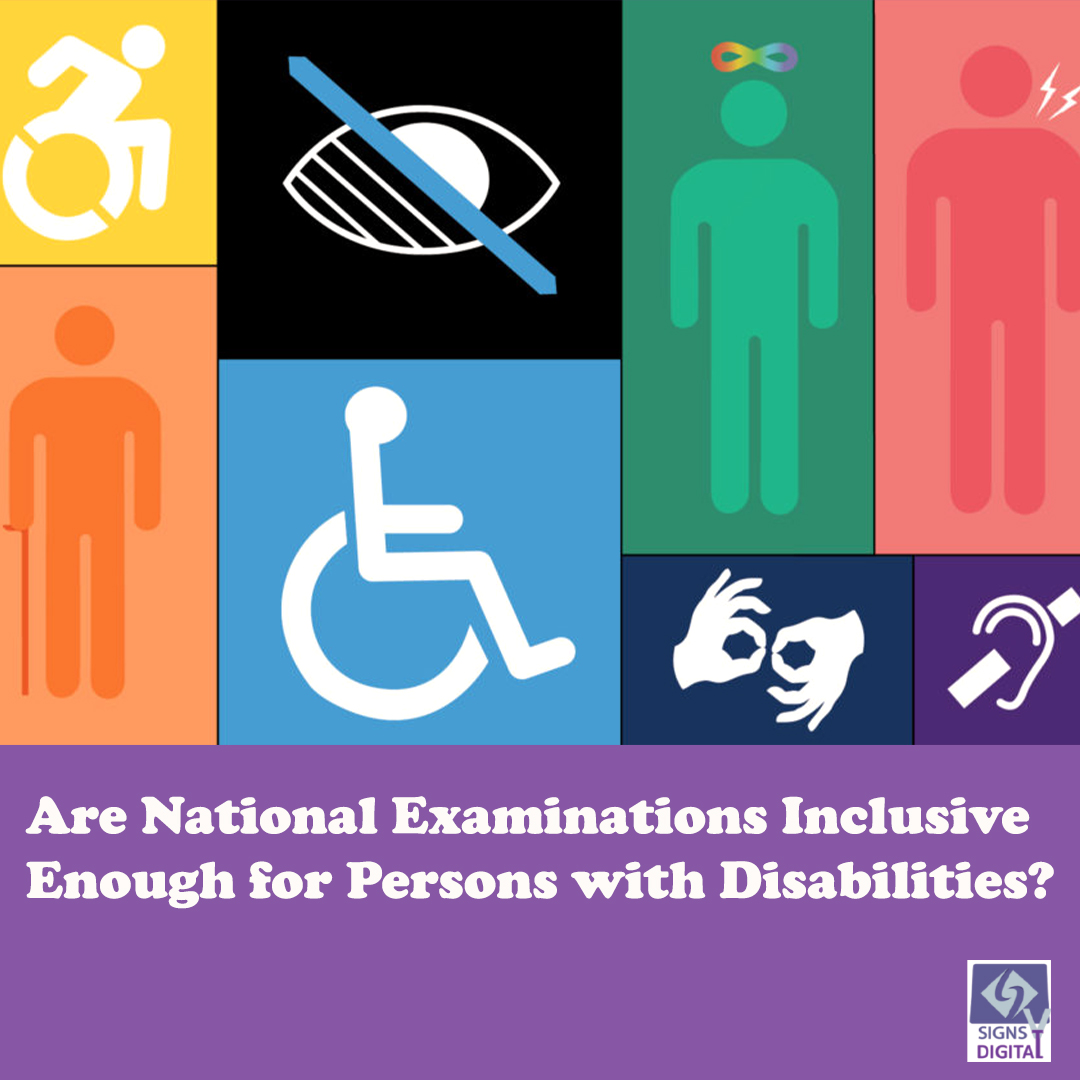Are National Examinations Inclusive Enough for Persons with Disabilities?

As examination halls across the country buzz with the anticipation of students taking tests and assessments, it is essential to draw attention to how educational institutions are making strides in accommodating persons with disabilities during this period. In an era of inclusivity and equal opportunities, ensuring that everyone has a fair chance to demonstrate their knowledge and skills is paramount.
One of the first steps to accommodating persons with disabilities during examinations is to ensure that the examination venues are accessible. Educational institutions have been working tirelessly to provide wheelchair ramps, elevators, and designated spaces for visually impaired students. This means that candidates with physical disabilities can comfortably access the examination rooms, thus alleviating any physical barriers.
For candidates with specific learning disabilities or those who require more time due to their disability, institutions now provide extra time to complete their exams. Additionally, alternative formats such as Braille, large print, or digital versions are offered for those with visual impairments or dyslexia, ensuring they can read and answer questions just like their peers.
The advancement of technology has brought a plethora of assistive devices that can significantly aid persons with disabilities during examinations. Screen readers, text-to-speech software, voice recognition tools, and communication devices are readily available to cater to the needs of students with various disabilities
In cases where technology may not suffice, qualified personnel are available to provide assistance. Sign language interpreters are present to aid students who are deaf, while scribes help those with physical disabilities, who may struggle with handwriting. These professionals ensure that the student's thoughts and knowledge are accurately conveyed on paper.
KSL (Kenyan Sign Language) assessments, instead of Kiswahili, focus on evaluating the expressive and receptive skills of deaf children in various linguistic areas. These assessments span phonology, vocabulary, morphosyntax, and narration.
Expressive tests gauge a child's ability to communicate their thoughts effectively, wants, and needs through sign language. This involves forming coherent and grammatically correct sentences, and it encompasses aspects like facial expressions, semantics, vocabulary, grammar, body language, gestures, and word formation.
On the other hand, the receptive exam involves students observing and interpreting signs made by the assessor or lecturer, testing their ability to comprehend and respond to sign language cues. These assessments are vital for understanding and supporting the linguistic development of deaf children.
Some disabilities, such as autism or attention deficit disorders, may require a quiet and low-stimulation environment to help students concentrate. To accommodate these needs, institutions provide special rooms or quiet areas where students can take their exams comfortably without distractions.
The effort to accommodate persons with disabilities during examinations is not merely about fulfilling legal obligations or ticking boxes. It's a reflection of a commitment to inclusivity, diversity, and recognizing the potential within every individual. These accommodations send a powerful message that everyone, regardless of their abilities or disabilities, is a valued part of the educational community.
While significant progress has been made in accommodating persons with disabilities during examinations, it's important to acknowledge that the journey is ongoing. As technology evolves, as awareness grows, and as the understanding of various disabilities deepens, so too will the efforts to create a truly inclusive educational environment.
In conclusion, the commitment to accommodating persons with disabilities during examinations is a testament to the evolving landscape of education. It's a reminder that everyone deserves a fair opportunity to demonstrate their knowledge and skills. As we witness students across the country taking exams, we also celebrate the steps taken toward more inclusive and equitable educational systems
Tags: Pwds Ksl Signstv Kcpe Dyslexia
Related
Share this article
I specialize in developing compelling stories and leading teams to produce high-quality, impactful journalism.
View articles

